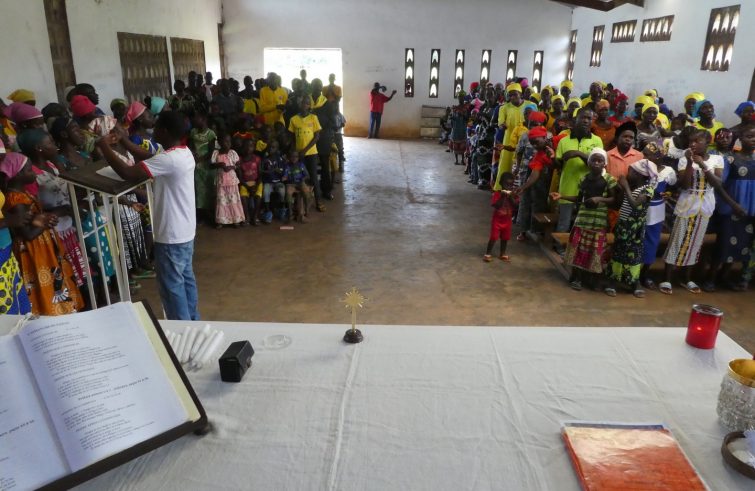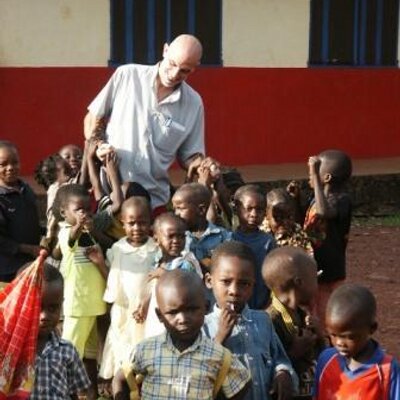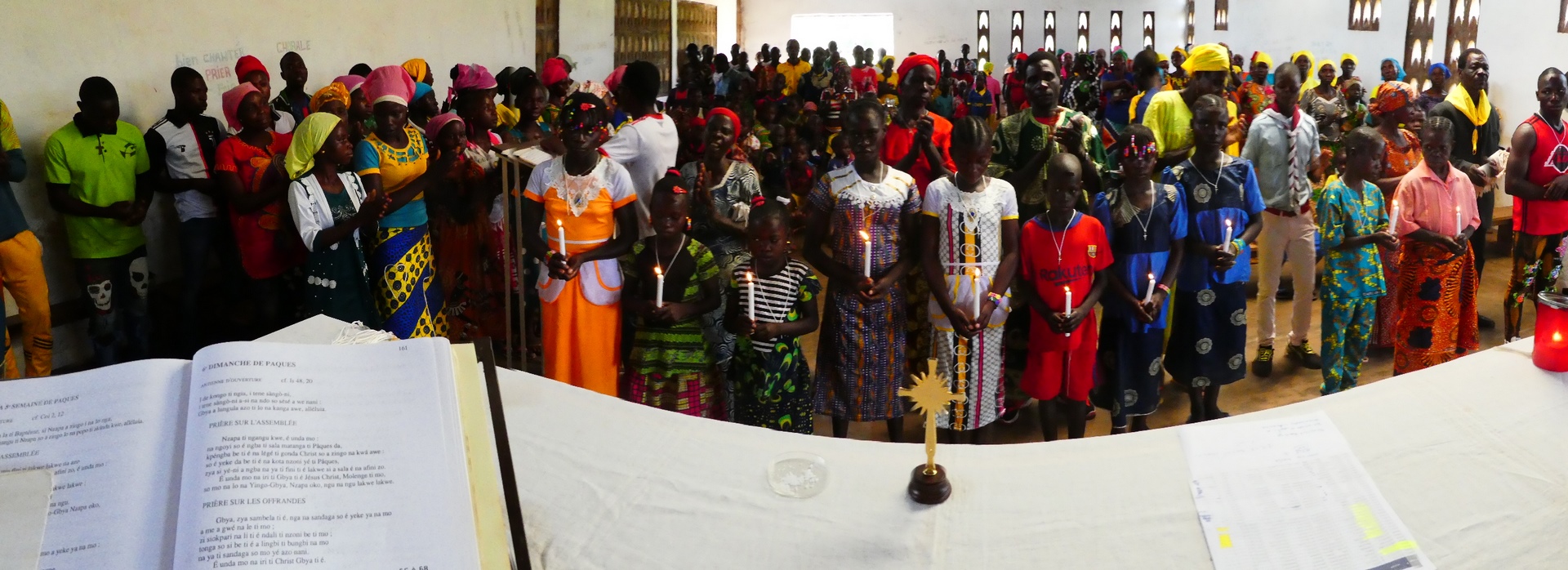
“A few days ago we distributed emergency aid to displaced persons in a community 70 km from Baoro. But now we are afraid of the landmines planted by Russian mercenaries, not to mention the continued violence wrought by the ongoing civil war, involving the government and rebel groups.” Father Aurelio Gazzera, a Discalced Carmelite missionary from Cuneo, Italy, has been living in the Central African Republic for almost twenty years. He witnessed all the stages of the conflict, throughout its highs and lows, the (unfulfilled) hopes for peace, internal political changes, and its geopolitical alliances. He lived in Bozoum, 300 km north of the capital, for 17 years. For the past year and a half he has been serving in Baoro, overseeing schools and kindergartens run by the Discalced Carmelites, also in neighbouring villages. This area is even poorer, with only one hospital and minimal public services. The area is close to the territories controlled by CPC (Coalition des patriotes pour le changement) rebels, who attempted a coup against President Faustin Archange Touadéra last year. The incumbent government decided to deploy Russia-linked Wagner Group mercenaries, in order to help liberate the capital from the rebel militias and push them back to the north-west. The rebel groups have withdrawn into their territories and live off illicit revenues generated by roadblocks.
 “But the Russians are no altar boys and they don’t do this job for free,” Father Gazzera told SIR. “Several UN and EU reports testify to human rights violations. A few days ago they ambushed and killed in cold blood a group of militiamen. Even the local population is afraid of the Russians. They have also planted landmines throughout the area.”
“But the Russians are no altar boys and they don’t do this job for free,” Father Gazzera told SIR. “Several UN and EU reports testify to human rights violations. A few days ago they ambushed and killed in cold blood a group of militiamen. Even the local population is afraid of the Russians. They have also planted landmines throughout the area.”
Outbreaks of violence on both sides are ongoing. A worker from Doctors without Borders was shot dead by a government soldier in Mayenne-Sido, in the prefecture of Ouham, although the motive is unclear. It could be a story involving alcohol or women. Clashes between rebels and the Russian-backed army in Ippy, in the centre of the country, resulted in widespread violence against civilians and many people were forced to flee their villages. The only good news is the abolition of the death penalty last May 27, although it was more of a formal matter, since the last execution dates back to 1981.
Consequently, caught in the grip of militias and government forces, with little trust in UN blue helmets ( MINUSCA) – unpopular in the country owing to sex scandals and a host of shortcomings -, approximately 60 per cent of the population remains in need of humanitarian assistance. The percentage of internally displaced persons ranges from 20 to 30% depending on the areas.
“The overall situation is marked by severe instability. In fact it worsened significantly over the last period of time.”
The missionary is worried about a variety of issues: in addition to chronic insecurity, the economy, domestic politics and geopolitical implications are cause for concern. The impact of the war in Ukraine is making its mark with soaring prices on imported products such as oil, flour, concrete and fuel: “This is not good for the country because it creates tensions.”.
 The spectre of bankruptcy. Above all, funds from the European Union and from African banks have been frozen of late and
The spectre of bankruptcy. Above all, funds from the European Union and from African banks have been frozen of late and
the State “risks facing bankruptcy, with no money to pay schoolteachers, the military, or healthcare workers’ salaries. There is a growing fear of chaos and anarchy, which is what happened years ago’.
Father Gazzera also mentions a peculiar parliamentary measure concerning the use of cryptocurrencies “passed by all MPs, written in English, in a French-speaking country where only 10% of the population has Internet access. It might be a strategy for covert payments to the Russians or to transfer elite groups’ finances abroad, to shield them against exposure to risks.”
Also the political realm has its pitfalls: President Touadéra is trying to change the constitution in order to be re-elected for a third term. Such moves are not new to African countries, which have frequently suffered serious repercussions in terms of instability. Moreover, after a strong French, European and Chinese presence, geopolitical interests are now shifting to the Russian side. “While I can understand the somewhat adolescent dream of people in Central Africa to rid themselves of dependency and neo-colonialism – says the Carmelite priest -, the risk is to continue walking the same path but with ‘other friends’. Diversifying one’s interlocutors is fine but it is necessary to know who you are dealing with.
Russia is becoming a very strong presence here, unregulated and uncontrolled.
While China is only interested in business and raw materials, Russia wants political power as well as gold and diamonds. In addition, Russia has a strong disinformation apparatus, active on the radio and social media.”
 African and global dynamics. The same is happening in other African countries in the region, such as South Sudan and the Democratic Republic of Congo. Africa’s dynamics also provide insight into some global dynamics, especially the events surrounding the conflict in Ukraine. “Interestingly, many people in the villages are praying for Ukraine,” says Father Gazzera, as if to highlight the shared destiny of peoples. There remains the consolation of the Pope Francis’ words. The Holy Father never ceases drawing attention to the many forgotten conflicts. “The fact that the Pope remembers us is of great help to us,” he concludes.
African and global dynamics. The same is happening in other African countries in the region, such as South Sudan and the Democratic Republic of Congo. Africa’s dynamics also provide insight into some global dynamics, especially the events surrounding the conflict in Ukraine. “Interestingly, many people in the villages are praying for Ukraine,” says Father Gazzera, as if to highlight the shared destiny of peoples. There remains the consolation of the Pope Francis’ words. The Holy Father never ceases drawing attention to the many forgotten conflicts. “The fact that the Pope remembers us is of great help to us,” he concludes.









